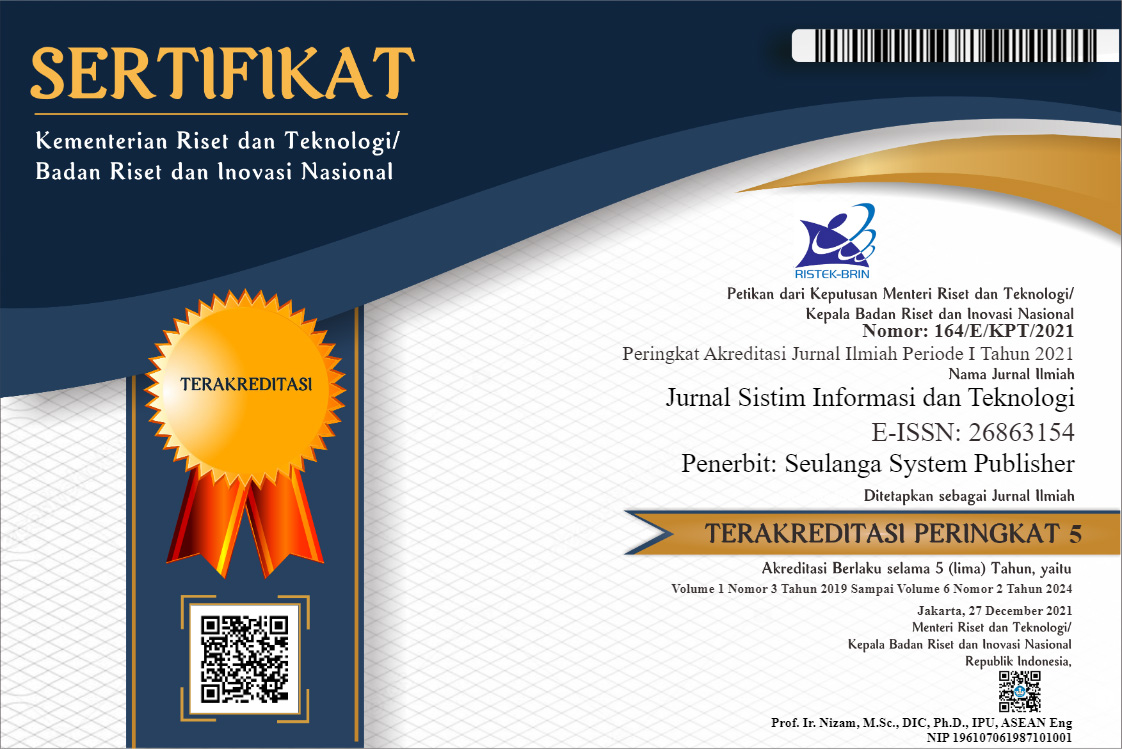Analysis of The Influence of Social Media Use and Social Behavior of Millennial and Z Generations on The Growth of Tourism Industry
DOI:
https://doi.org/10.60083/jsisfotek.v6i2.372Keywords:
Millennials and Z Generations, Travel, Influence, PlatformAbstract
This study aims to determine how tourism relates to millennials and Z generations by analyzing their motivations for travel experiences and social media use. This study employs a hybrid methodology, primarily focusing on qualitative aspects. We conducted a bibliographic review and descriptive survey analysis by collecting data from 100 respondents through an online survey using Google Forms. The results of the analysis show that millennials and Z generations are highly dependent on smartphones to connect to the internet and social media, with Instagram as the main platform. They spend six to nine hours per day online, and their phones are often considered an extension of themselves. Millennials and Z generations tend to publish their travel photos on Instagram, focusing on experiences that feature stunning natural scenery and expressions of joy, to strengthen their positive image. Millennials and Z generations primarily travel to explore new cultures and interact with people, and their inclination to capture and share photos serves as a social status indicator. Overall, millennials and Z generations use social media as a tool to build and communicate their social identity, focusing on experiences that can strengthen their positive image and gain recognition. Thus, this phenomenon reflects a shift in the way millennials and Z generations interact with the world and seek to influence and inspire others through the digital content they share
References
Hendy, T., Resdiansyah, R., Johanes, F. A., & Rustono, F. M. (2020). Exploring the role of ICT readiness and information sharing on supply chain performance in coronavirus disruptions. Technol. Rep. Kansai Univ, 62, 2581-2588.
Hakim, A. (2020). Effect of compensation, career development, work environment on job satisfaction and its impact on organizational commitments in PT Jakarta Tourisindo. Journal of critical reviews, 7(12), 538-548.
Gai, A. M., Dwijayani, H., Pattiruhu, F. J., Joesidawati, M. I., & Safari, A. (2024). Analysis of The Influence of Comprehensive Environmental Study and Regional Heritage Preservation on The Growth In The Valuation of Tourism Site Towards World Class Tourism. Innovative: Journal Of Social Science Research, 4(3), 7287-7295.
Koto, E. A., Samudra, A. A., Zainal, V. R., Sumrahadi, A., Hakim, A., Hariyadi, A. R., & Subagja, I. K. (2019). Relationship of work motivation and participative Leadership with functional employment behavior of education and culture of Bengkulu Province, Indonesia. International Journal of Business and Applied Social Science, September, 1-19.
Sangadji, R., Zainal, V. R., & Hakim, A. (2023). The Relationship between Welfare and Work Motivation with the Work Produc-tivity of Family Planning Extension Workers in the Administrative City of East Jakarta. International Journal of Social Science And Education Research Studies, 3(10).
Sukmana, P., & Hakim, A. (2023). The Influence of Work Quality and Employee Competence on Human Resources Professionalism at the Ministry of Defense Planning and Finance Bureau. International Journal of Social Science and Business, 7(1), 233-242.
Herdiyopie, N. C., Suharto, S., Subagja, I. K., & Hakim, A. (2020). The Effect of Good Corporate Governance and Internal Audit Implementation of Quality of Financial Statement through Intellectual Capital in Pt Jakarta Tourisindo. International Journal of Management Excellence (ISSN: 2292-1648), 14(2), 2066-2077.
Diposentono, L., Zainal, V. R., & Hakim, A. (2023). Organizational justice, work discipline, and employee performance: A literature review. International Journal of Advanced Multidisciplinary, 1(4), 327-334.
Gai, A. M., Poerwati, T., Maghfirah, F., & Sir, M. M. (2020). Analysis of sustainable livelihood level and its influence on community vulnerability of Surumana village, central Sulawesi. Journal of Regional and Rural Development Planning (Jurnal Perencanaan Pembangunan Wilayah dan Perdesaan), 4(3), 209-220.
Sasongko, I., Gai, A. M., & Immaduddina, A. (2022, February). The concept of rural tourism recovery pasca Covid-19, Kertosari Village, Purwosari Sub-district, Pasuruan Regency, Indonesia. In International Conference on Government Education Management and Tourism (Vol. 1, No. 1).
Sasongko, I., Gai, A. M., & Azzizi, V. T. (2024). Sustainable Development Concept of Heritage Kampung Tourism Using Novel Prioritization Approach. Sustainability, 16(7), 2934.
Gai, A. M., Chatra, A., Ibrahim, M. M., Anantadjaya, S. P., & Nawangwulan, I. M. (2024). Analysis of The Influence of Information Availability, Economic Factors and Changing Trends on Travel Agent Business Sustainability in Digital Era. Jurnal Sistim Informasi dan Teknologi, 6-11.
Hakim, A. (2023). The Influence of Duties and Education Experience on New Personnel Duties in the Indonesian National Army's Operating Staff Environment. International Journal of Social Science and Business, 7(1), 199-207.
Sharma, M. K., Bhagwat, R., & Sharan, G. (2005). Practice of Performance Measuremnet: Experience from Indian SMEs. Internation Journal of Globalization and Small Business, (2), 183-213.
Gai, A. M., Mahmudin, T., Violin, V., Utama, A. N. B., & Apramilda, R. (2024). Analysis of The Effect of Cultural Tourism Development, Accessibility and Economic Policy on Tourism Competitiveness in Indonesia. International Journal of Engineering, Science and Information Technology, 4(2), 16-20.
Tannady, H. (2019). Process improvement to reduce waste in the biggest instant noodle manufacturing company in South East Asia. Journal of applied engineering science, 17(2).
Downloads
Published
How to Cite
Issue
Section
License
Copyright (c) 2024 Jurnal Sistim Informasi dan Teknologi

This work is licensed under a Creative Commons Attribution 4.0 International License.









